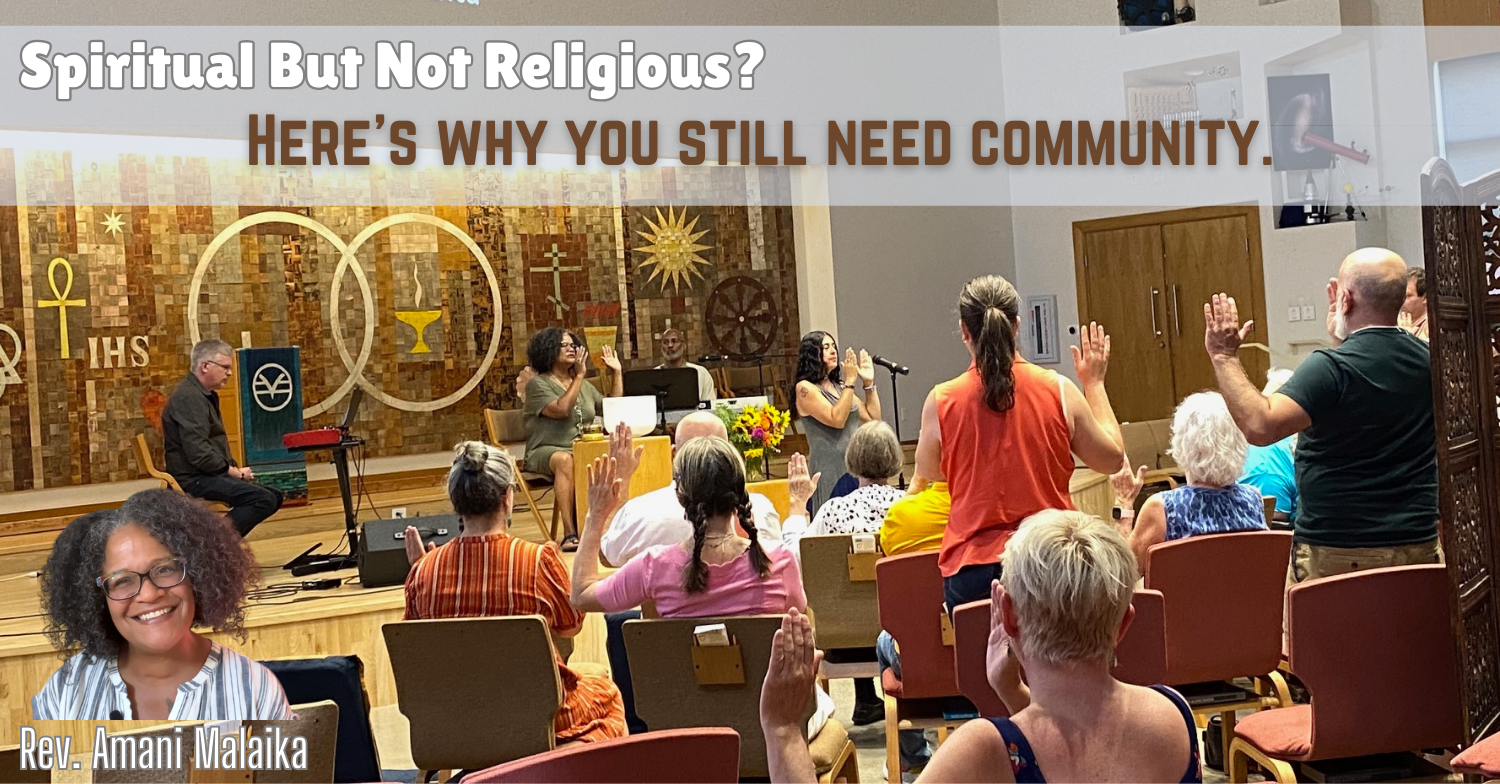Spiritual But Not Religious??


Lately, I’ve noticed a pull—subtle but strong—to retreat. To withdraw. To wrap myself in silence and close the door behind me. Sometimes it feels like self-care. Sometimes it feels like survival. And sometimes, if I’m being honest, it feels like numbness disguised as solitude.
I know I’m not alone in this. I’m hearing stories of escapism and isolating from a lot of folks lately. We are living through the great turning that is apocalyptic—not in the fire-and-brimstone way, but in the ancient Greek sense of apokálypsis: an unveiling. The veil has been lifted. Systems are crumbling. Truths are being revealed. The cracks and harm are undeniable in our institutions, in the climate, in the global violence and genocides, in our own families and relationships, and even in our own hearts.
In this kind of world, it’s tempting to hunker down and go it alone. Especially for those of us who identify as “spiritual but not religious.” We’ve been burned before. Some of us fled churches that hurt us, shamed us, communities that excluded us, dogmas that denied the beautiful complexity of our humanity. So we left. And rightfully so.
But I wonder if, in our rejection of oppression, we also threw away something vital: the deep medicine of spiritual community.
Religion at its worst is violent, controlling, exclusionary, rigid. But at its best, it’s a container of divine kinship. A rhythm. A home. It gives us structure, not to trap us, but to catch us when we fall. It offers us rituals that root us, practices that grow us, and people who remind us who we are when we forget. It gives us belonging—not the shallow kind, but the kind that sees you with all your warts and weirdness and says: you are part of this. You are wholly holy.
I think our spiritual-but-not-religious spaces can sometimes miss that. We love freedom—and rightly so—but we forget that freedom without community becomes isolation. Or as author and teacher Mirabai Starr warns, “Spirituality without community risks becoming spiritual narcissism.” We forget that sacredness isn’t just something we find in solitude—it’s something we co-create in the presence of others. We forget that healing happens in circles, not just in silence.
And if we’re not careful, we can mistake our desire for autonomy as a spiritual virtue, when sometimes it’s just the voice of capitalism and colonialism whispering through our words and choices. This myth of rugged individualism & bootstrap bullshit—that we should be self-sufficient, that needing others is weakness, that the spiritual journey is a solitary one—is not wisdom. It is wounding. It is the residue of empire, not the truth of our souls.
Because here’s what I know: underneath the impulse to isolate and gaurd is also a deep longing to belong. Not to fit in, but to belong in a space where our whole selves—joy and grief, power and vulnerability, questions and certainties—can show up and be held. We don’t want a crowd. We want kin. We want mirrors. We want sanctuaries where our spirits can exhale and our truths can be spoken without performance. Where we are way more than tolerated but celebrated and recognized as divine.
And that kind of community doesn’t happen by accident. It happens because we choose it. Because we practice it. Because we return to it again and again, even when it’s messy, even when it’s hard. Especially when it’s hard.
We are not just longing for connection. We are wired for it. Spiritually. Neurologically. Historically. Across faith traditions, community is not a side dish—it’s the main course. In Buddhism, the sangha is one of the Three Jewels. In Christianity, Jesus gathered disciples before he preached a word. In Indigenous cultures, wisdom is passed in circles and ceremonies, not in private revelations. And in every tradition, the presence of the holy is amplified when people gather with intention and reverence…often around a table sharing a meal.
As James Baldwin wrote, “Love… is the work of mirroring or magnifying each other’s light.” That is what spiritual community is: the place where we witness and reflect, not to judge, but to bless and be blessed.
So if you, like me, are feeling that pull to withdraw—listen to it. It may be asking for rest, integration, tenderness. But don’t let it become your home. Because the apocalypse isn’t just about endings. It’s also about beginnings. And if something new is going to be born, it’s going to be born in us and through us—not as individuals, but as a collective, a community, a sacred we.
Maybe what we need right now is not more answers, but more people to wrestle with the questions. Maybe what we need is not just spiritual practice, but spiritual presence—with one another, for one another. Maybe community isn’t just where we go to be known; maybe it’s how the Divine becomes known through us.